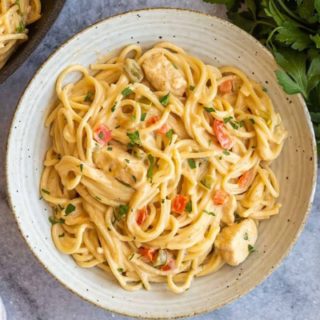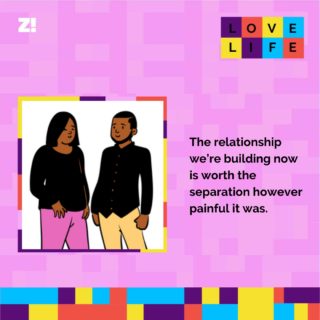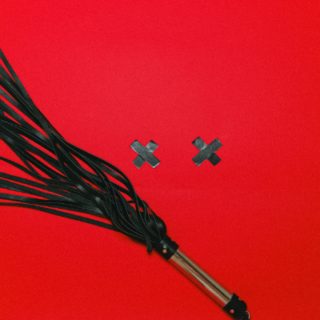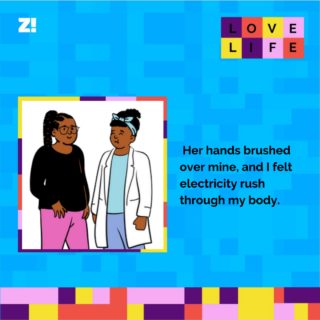The Elevator is a limited Zikoko series that details the growth of young successful Nigerian women. We tell their stories every Tuesday by 12 p.m.
Being a successful artist in 2022 looks like political art, a thousand retweets, national recognition and sold out galleries. A successful artist in 2022 looks like Chigozie Obi. At 15, she convinced her dad to let her study art. By the time she turned 19, she had started making money from art. Chigozie Obi is a 24-year-old multidimensional visual artist. In today’s episode of The Elevator, Chigozie talks about her journey as a female artist whose work focuses on projecting women in ways that deviate from the norm.
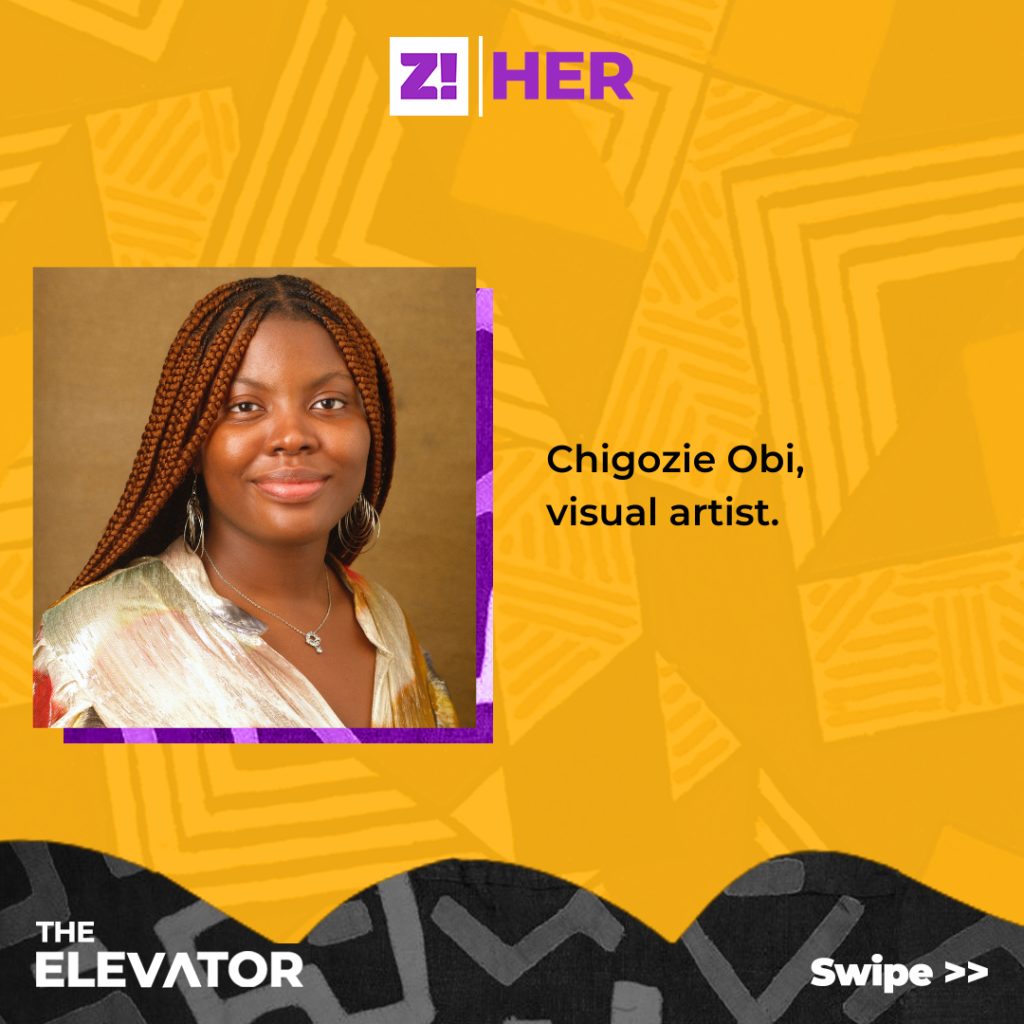
When did you develop an interest in art?
In secondary school. I was 12 years old and art was one subject I was good at. I remember one time they taught us scale drawing and we had to draw a celebrity. I did that and even added shading. My teachers loved it.
I felt special, especially because I was struggling with other subjects. Art brought me some kind of comfort. Obviously, I picked art class when it was time to choose between art and science class. Since then, I have been on that path.
What did want to do before that drawing class?
I wanted to become a medical doctor before I discovered art. I was given a toy medical set when I was a baby, and I thought I wanted to become a doctor, alongside many other things. But after I discovered art, that dream died.
I wanted to become an artist but I thought I couldn’t study art at university. I thought my parents wouldn’t let me, so I picked mass communication instead.
Just before I wrote JAMB, some of my family members saw my drawings and encouraged me to talk to my dad about it. I was 16 years old then. I thought about it and eventually spoke to my dad. He wasn’t happy about it but he agreed. That’s how I went to study creative arts at the University of Lagos.
What was studying art in Nigeria like?
It wasn’t so good and I was very unsure of my career path. I didn’t know what I wanted to be as an artist or what I wanted to focus on. Especially because at the University of Lagos, they didn’t exactly teach me about the practical aspects of the course. They gave us a lot of assignments but they didn’t teach us the business aspect of art. They also wanted our work to look a certain way. There wasn’t much room for experimentation, and it was quite frustrating for me.
This changed in my third year in university when I went for IT at The Universal Studios in Iganmu. I learned so much about painting and drawing there.
After my IT, I wasn’t as concerned with school work as much I was concerned with creating my art. I started painting how I wanted and that brought me joy. I was still involved in schoolwork, but I knew that my work was more important to me and eventually it started to pay off.
What happened?
The first time someone bought my painting was during my IT In 2016. It boosted my confidence. I wanted more of that. I invested my time into my work and created more art. More people bought my art and my parents started to come around. I became a full-time artist that year.
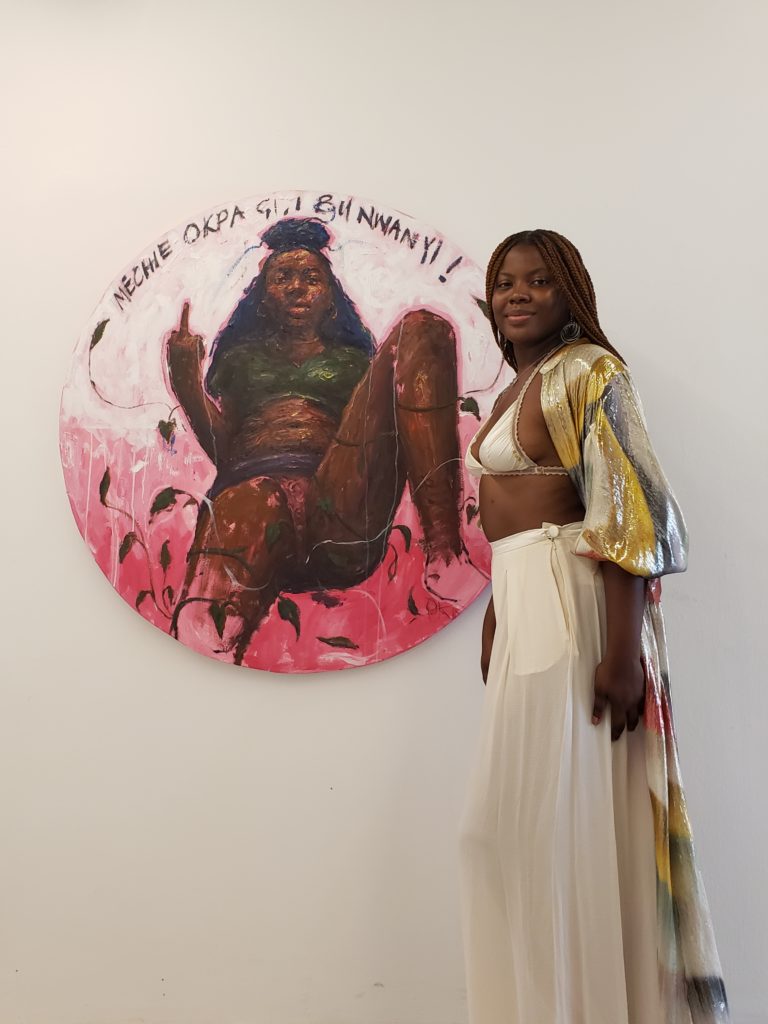
How did that go?
It’s been good. I’m more focused on creating art than anything else. I like to experiment with different mediums, so sometimes I create just for the sake of it. I’m into photography, oil and acrylic painting and lino printing.
Most of my work focuses on women and the issues that we face. I also use my personal experiences as inspiration. I have a series I have been working on that presents women in opposition to the things they’ve been told to be by society. I’m excited about it.
The other parts of being an artist outside the artistry isn’t as easy though.
I’m listening.
The income flow isn’t steady like a 9-5 job. Every month is different. You might sell, you might not sell. Some people go months without selling, and the gag is you have to keep working. I always have to put out my ideas to show people my progress and also to get feedback. To do this, I need money for the materials. Honestly, it can be tough.
It wasn’t until last year that my income from art became steady. This year, I won The Future Awards Africa Prize for Arts & Literature. The money and the recognition boosted my motivation, but my ultimate priority is getting better at my work. With art, I’m always learning. When I get to a certain stage with my work, I feel satisfied, but that doesn’t last long because I want to get to the next stage.
What’s it like being a full-time artist in Nigeria?
Being an artist in Nigeria means not having access to certain materials like gold leaf, lino print ink and water based oil paint and importing is hell because of the dollar/naira rate. Things like this limit your practice.
There’s also the part about being a female artist in Nigeria. Sometimes learning becomes a transaction — the teacher might want something in return for the knowledge. Even people who buy your work can make you uncomfortable. After buying it, they want your number and want to be able to call you whenever they want because they bought your work. It’s crazy sometimes, but I try not to focus on the bad parts.
Sounds like a good plan. What’s your process like when you’re working on a new piece?
It’s quite simple, I’d say. I have someone who prepares my canvas for me. When he’s done, I start my work on the canvas. I work mostly at night or very early in the morning because everyone else is asleep, and it feels like it’s just me alone in the world. I feel like my brain can function better. I also work during the day, but I need my music and my space.
I am a fast painter so when I start painting something, it goes by quickly. This doesn’t happen all the time. This helps me because I usually have a lot of breaks in between projects.
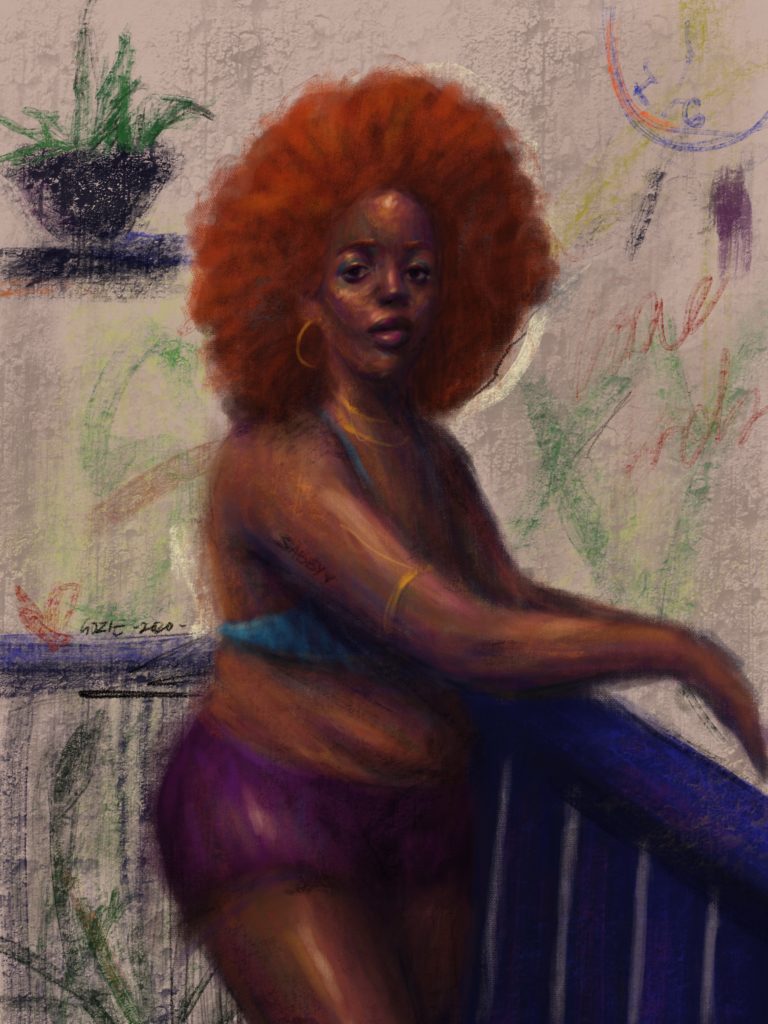
I’m curious about how you get through an art block.
I have a lot of times where I don’t paint. I prepare what I want to work on and wait it out. During this time, I try not to stress about it and focus on other things I enjoy like hanging out with my friends or watching a movie.
When I have a deadline to meet, I can force myself to do the work. My trick is to press paint out on my palette and because I don’t want the paint to waste, I have to work. Other times, I just sit in my studio and wait for inspiration. It works most times.
What does being at the top of your game look like?
It looks like being satisfied with my work. I want to get to a point where I can feel confident in my art.
Being at the top of my game also looks like a lot of money. I want a big studio I can work in and have access to all the materials I need. That’d make me very happy.
I also want to be able to provide opportunities for other artists, especially women. I do this already at a collective that I run with other artists called The Artist Resource Collective. We are a donation-based collective that provides materials for artists that don’t have them. We started in 2021, and we are currently in the middle of the second cycle of donations. I hope the collective grows, and we’re able to do more workshops and residences. I’d be really happy with that.
Is there something you’d have loved to change about your career trajectory?
I can’t say, but it’s possible that I would change a few things. I know so many things now that I didn’t know then but the journey here has been fulfilling.
What would you say to a 15-year-old version of yourself?
Be very confident in yourself. Continue with your work and always be true to yourself. It will get hard, but you have to keep pushing. Also, invest in Bitcoin.
Subscribe to our HER newsletter for more stories about African women and how they navigate life.

